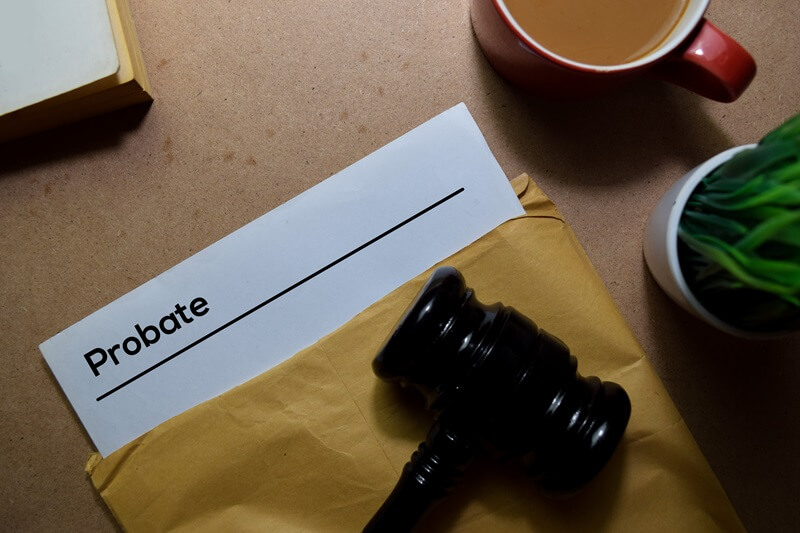What Evidence Is Needed For Trust Litigation Cases?
What Evidence Is Needed For Trust Litigation Cases?
Trust litigation causes anxiety when families dispute over financial assets. People create trust for clarity, but conflicts over validity, trustee actions, or unexpected term changes still arise. Courts rely on evidence, which functions like puzzle pieces that uncover missing details. Each document, witness statement, and record helps litigants clarify issues, protect rights, and counter false claims.
This article highlights the importance of evidence and outlines a clear roadmap for collecting and presenting it. It also explains how an attorney helps litigants navigate hurdles. You can confidently approach trust disputes in San Diego and beyond with these insights.

Understanding Trust Litigation
Trust litigation arises when individuals disagree about a trust’s validity or the actions of a trustee. These disputes often involve emotionally charged issues, such as inheritances and family dynamics. Each allegation demands compelling evidence to support or refute the claim. Common claims include:
- Undue Influence: Someone pressures a trustor to make decisions that do not reflect their true intentions.
- Mental Incapacity: The trustor lacks the cognitive ability to make informed decisions.
- Breach Of Fiduciary Duty: A trustee fails to act in the best interests of the trust and its beneficiaries.
For example, an elderly parent might alter a trust under the coercion of one child, prompting other siblings to contest its validity. In another case, a trustee’s mismanagement of funds could lead beneficiaries to seek legal action. Both scenarios require strong proof to defend or challenge the trust’s terms.
Trust litigation involves more than legal rules; it reflects personal stories of strained relationships and financial pressures. Litigants who connect their experiences to the legal framework create a stronger narrative. They enhance their chances of achieving a favorable ruling by presenting evidence that ties real-life events to legal standards.
Understanding the causes of trust disputes sets the stage for addressing them effectively. Strong cases rely on specific types of evidence that support or challenge claims in trust litigation.
Types Of Evidence In Trust Litigation
Evidence in trust litigation comes in several forms that blend to create a compelling picture. Attorneys often weave these pieces together to tell a coherent story demonstrating what happened. Understanding these categories helps litigants choose a solid proof for their cases.
Documentary Evidence
Documents are often the most persuasive proof in trust disputes. Trust agreements and amendments reveal the trustor’s intentions. Financial records, such as bank statements, expose irregular transactions that might indicate fraud or mismanagement. Emails, letters, or other correspondence can highlight undue influence or clarify the trustor’s state of mind.
For example, a sudden change to a trust shortly before the trustor’s passing might raise red flags. Financial records showing large withdrawals or transfers during this period could further strengthen your case.
Testimonial Evidence
Witnesses provide critical context. Testimony from friends, caregivers, or professionals involved in drafting the trust can illuminate whether the trustor was coerced or lacked mental capacity. Medical professionals may analyze records to determine if the trustor has the cognitive ability to make decisions.
These accounts humanize the evidence and help judges or juries connect with the case.
Physical Evidence
Original copies of trust documents or handwritten notes from the trustor can also be impactful. Forensic handwriting experts might analyze these items to confirm their authenticity. Such evidence can be pivotal when forgery or fraud is suspected.
Attorneys use these tools to construct strong arguments in court, but collecting evidence is just the beginning. Building a compelling case demands a well-planned and strategic approach to effectively gathering, organizing, and presenting this evidence.
Steps & Considerations In Gathering Evidence
An organized approach to evidence collection helps litigants build a persuasive case. By following clear steps and exercising diligence at each stage, you can increase your chances of success in trust litigation. Taking time to gather comprehensive, relevant evidence ensures you have the tools needed to address legal and factual issues effectively.
Initial Review
Start by examining the trust document and its amendments. Look for inconsistencies, such as sudden changes that favor one party. Identify witnesses who were involved in drafting or amending the trust. This review helps pinpoint areas requiring further investigation.
Discovery Phase
The discovery process allows you to uncover additional evidence. Depositions provide sworn testimonies from involved parties and witnesses. Subpoenas compel third parties, such as banks or medical professionals, to release critical records.
Bank statements might show unauthorized transactions, while medical records can clarify whether the trustor was mentally competent.
Preserving Evidence
Preserve all documents and electronic records to avoid tampering or loss. Digital files should be stored securely, and paper documents should remain unaltered. Properly tracking the chain of custody for key evidence ensures its authenticity and strengthens its reliability in court. Failing to protect evidence can weaken your case and reduce its credibility.
Collaboration With Professionals
Working with financial analysts or forensic experts can uncover irregularities that might go unnoticed. For example, a forensic accountant can track unusual financial patterns that indicate embezzlement or fraud. Further, a medical professional can evaluate whether the trustor’s cognitive health supports their decisions.
The evidence-gathering process is thorough and often uncovers critical details that can shape a case’s outcome. However, it also presents its own set of challenges that litigants must navigate to ensure success.
Challenges In Collecting Evidence
Collecting evidence in trust litigation involves complexities that demand time, effort, and strategic problem-solving. Litigants may face numerous obstacles that slow the process, complicate the case, or require creative legal solutions. Addressing these issues is critical for building a strong and credible case.
Access Issues
Some parties refuse to disclose documents or information. For example, a trustee who suspects accusations of mismanagement might hide financial records or stall when asked to produce statements. Attorneys usually respond by filing motions to compel and seeking court orders.
Although these legal tactics eventually force disclosure, they can also prolong litigation and increase costs.
Legal Hurdles
Privacy regulations and professional privileges can prevent certain records from being obtained. For instance, doctors cannot share a patient’s health history without written permission or a court order. Similarly, communications between an attorney and a client may remain confidential.
Litigants must navigate these legal barricades by working with the court to gain limited access to sensitive materials.
Authenticity Concerns
Opponents may challenge the credibility of documents or testimonies, claiming forgery or biased motives. Attorneys address these concerns by hiring forensic experts to analyze handwriting, ink, or document history. They also collect supporting statements from impartial witnesses to strengthen their case.
Overcoming these evidentiary obstacles demands advanced knowledge and strategic planning. Attorneys become indispensable at this stage as they guide individuals through legal complexities and craft a compelling case.
The Role Of A Trust Litigation Attorney
Attorneys provide legal, investigative, and strategic support. They do more than file paperwork or appear in court; they build compelling narratives that judges or juries find persuasive. Their meticulous approach can make the difference between a successful resolution and a drawn-out battle.
Evidence Collection & Analysis
Attorneys begin by reviewing every relevant piece of documentation, such as bank statements, emails, or medical records. They look for anomalies, inconsistencies, or hidden details that might strengthen their client’s position. When deeper investigation is needed, they hire private investigators or forensic experts to verify suspicions.
Depositions & Interviews
Lawyers manage witness testimony by conducting thorough depositions and interviews. They craft pointed questions that uncover lies, highlight contradictions, or compel individuals to provide crucial information. During hearings or trials, attorneys present exhibits and testimonies in a structured, clear way so judges or juries fully understand the evidence.
Negotiation & Settlement
Attorneys also serve as negotiators who explore settlement possibilities when mutual agreement seems feasible. They leverage the evidence gathered to highlight their client’s strengths and the risks the opposing side faces. A well-structured negotiation often leads to a fair resolution without needing a protracted court battle.
By working with a trust litigation attorney, you gain an ally who understands the complexities of the process. They can pinpoint legal nuances, gather and interpret evidence, and present that evidence with precision and credibility.
San Diego Probate Attorneys, Your Trust Litigation Partner

At San Diego Probate Attorneys, we have extensive trust litigation experience in California. Our team focuses on personalized service and transparent communication. We begin every case by analyzing trust documents, financial records, and any relevant medical or legal files that may show undue influence or mismanagement.
We interview witnesses, review depositions, and coordinate with forensic experts to detect potential fraud. Our attorneys plan discovery, file subpoenas, and stay on top of deadlines. We often negotiate mutually beneficial settlements but use our trial experience to present evidence with precision when needed.
By working with us, clients gain a partner who understands complex trust disputes and seeks fair outcomes.
Trust litigation depends on solid evidence. Litigants rely on documents, witness statements, and physical items to show the trustor’s intentions or uncover a trustee’s wrongdoing. Effective collection requires thorough reviews, strategic discovery, and careful record preservation. Challenges like withheld documents, privacy concerns, or authenticity doubts demand strategic legal solutions.
Our law firm, San Diego Probate Attorneys, offers informed guidance, relentless advocacy, and compassionate support for those facing trust disputes. By working with a skilled legal team, litigants can protect their rights, present decisive evidence, and pursue fair resolutions.








